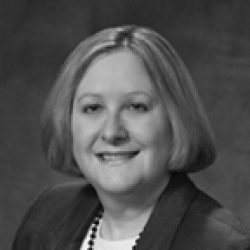Legally Speaking
It's no secret that individuals today are living longer lives than previous generations. A person born in 1900 had an average life expectancy of less than 50 years. Leading causes of death were communicable diseases such as influenza, tuberculosis, and diphtheria, and infant mortality was common. In contrast, a female child born in 2000 has a life expectancy of almost 79 years and a male child of almost 73 years. A 75-year-old man alive today can expect to live an additional 10.1 years, and a 75-year-old woman can expect to live an additional 12.1 years.
While many older persons are able to live active, healthy lives well into old age, there are also those who develop chronic diseases and degenerative illnesses rare in earlier times. The risk of Alzheimer's disease increases with aging. While not every older person will suffer from Alzheimer's, statistics show one in 10 individuals over 65 and nearly half of those over 85 are affected.
Families of older persons frequently face legal, financial, and social problems in attempting to ensure their loved one is safe and well taken care of. As our population has aged, services for the benefit of the elderly have become more available. A new area of legal services, called elder law, has developed in the last 15 years. This goes beyond the traditional estate-planning practice. Elder law attorneys view their practice as more holistic, providing information, advice, and representation in a broad range of areas that affect older persons.
Not every elder law attorney handles all of the following issues, but elder law in general includes such diverse areas as:
- Governmental benefits such as Social Security and Veterans' benefits.
- Disability planning, including the preparation of living wills and durable powers of attorney.
- Guardianships for those unable to handle their own affairs anymore.
- Medicaid and Medicare claims and appeals.
- Preservation of assets to prevent spousal impoverishment when one spouse enters a nursing home.
- Supplemental and long-term health insurance issues
- Nursing home issues such as questions of residents' rights and nursing home quality.
- Elder abuse issues, including financial exploitation of the elderly.
- Physical and mental health law.
- Retirement issues, such as questions about pension and other retirement benefits.
- Housing issues, including discrimination in housing and reverse mortgages.
- Age discrimination in employment.
- Traditional estate planning and probate administration of wills and trusts.
Elder law attorneys are not only familiar with the laws and regulations governing the above areas, but they also have a familiarity of the particular difficulties faced by older persons and a special empathy towards their clients and the families caring for them. Such attorneys also develop a network of community resources that assist the elderly, including doctors and psychologists who specialize in geriatric care, home health and companionship services, elder abuse agencies, nursing home ombudsman programs, nursing homes, and assisted living centers and retirement communities.
The National Academy of Elder Law Attorneys is a valuable Web site that contains many resources. For more information, visit www.naela.org. TPW

